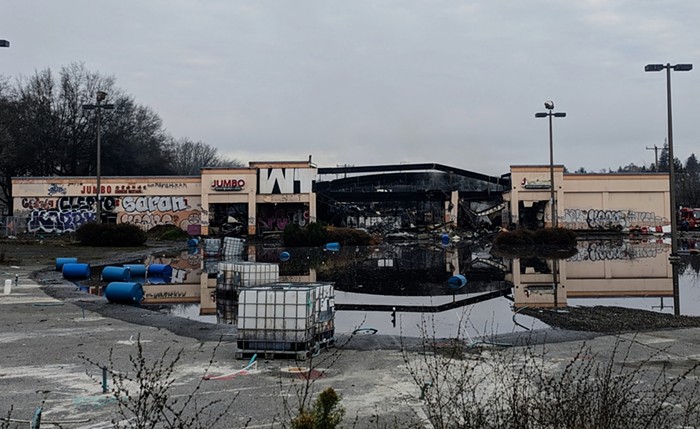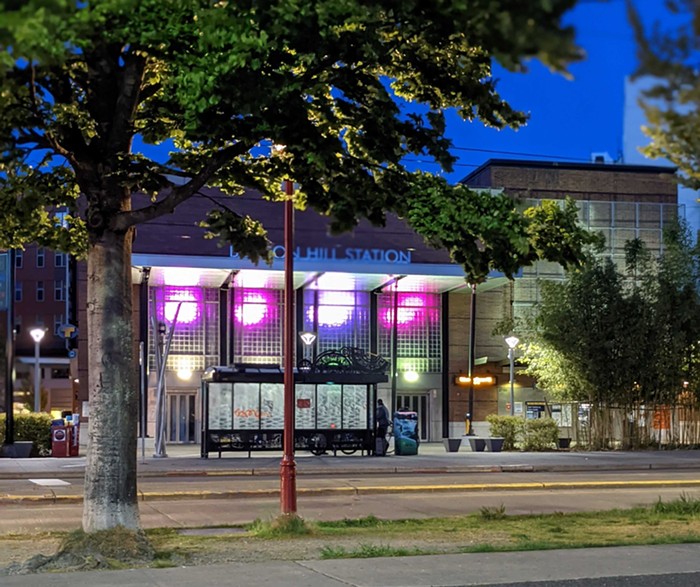
If you work on the 7th floor of City Hall, the affordable housing debate has been long settled. But if you are one of the 45,000 Seattleites who spend over half their income on rent, it is anything but.
The city council is poised to vote next week on one of the lowest affordable housing mandates in the nation: As little as 2 percent of each new building would go toward affordable housing in South Lake Union and Downtown Seattle, which is close to the least our government could do. Imagine feeling like you've solved world hunger after donating two cans of ravioli.
Because of its density, this upzone is the workhorse of the city’s “Grand Bargain” with developers to produce more affordable units. This would be an incredible lost opportunity. Once made law, developers will immediately vest their projects and lock in this remarkably low rate permanently. And that is exactly what for-profit developers are hoping for. Seattle must ask for more, not less, affordability.
A national study from the Journal of Urban Affairs found that for every $100 rent increase there is a corresponding 15 percent increase in urban homelessness. As real estate lobbyists offer assurances that — any moment now — rents will drop if we build more market rate housing, we have seen rents increase an average $635 per month over the last six years. It should then be no surprise that King County has seen its homeless population explode with more than 4,500 people on the streets, a 19 percent increase from the previous year.
Given our housing crisis, how did we arrive at a 2 percent mandate? The “Grand Bargain” created two arbitrary standards for developers based on whether they are inside or outside the Downtown/South Lake Union area. Our city’s wealthiest downtown developers would be asked to pay the lowest rate for their share of providing affordable housing in our city. If they are inside that area, a lower affordable housing standard applies that was carried over from an incentive zoning policy passed in 2013.
For those who remember, that same year Council Member Tim Burgess ushered in a policy that required developers to pay $22 per square feet toward affordable housing from residential developments in South Lake Union. However, a city-commissioned feasibility study from Spectrum Development Solutions found the fee for affordable housing could be as high as $80-90 per square feet. While this study was specific to the incentive zoning program, it demonstrated additional capacity to increase affordability requirements — up to four times the amount. In short, the city was leaving money on the table, and a lot of it.
In 2013 the city council made a political, not economic, decision for lower affordability requirements in the most profitable development space in our city. This loophole lives on in the Grand Bargain and will create a windfall of millions of dollars for private developers, at a loss of hundreds of units of affordable housing in the midst of our worst housing crisis. According to one analysis, if this loophole were closed downtown developers would have to pay as much as $2 million more each year toward affordable housing. In Seattle, a worker must now earn over $29 an hour to afford an average two bedroom apartment.
But there is a glimmer of hope. Council Member Lisa Herbold has asked a reasonable question ahead of the vote next week: If the city’s own study found that we could create a better outcome with more affordable housing that holds no harm to development… why shouldn’t we? Four of the nine city council members were elected after the Grand Bargain was negotiated, which could give them an opening to reconsider a better deal for the city. If Seattle voters agree that a 2 percent affordable housing mandate is not enough, they need to contact their city council members or testify at the upcoming hearing Monday April 10 at 2pm in Seattle City Council Chambers. Together, we can demand more from our city council and more affordability from private developers.
Jon Grant is the former Executive Director of the Tenants Union of Washington State and a candidate for Seattle City Council, Citywide Position 8.

















